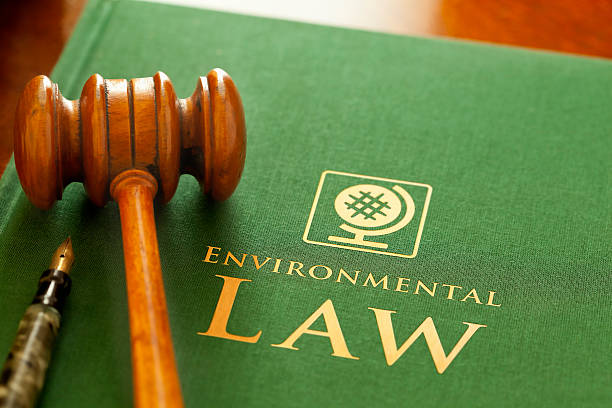Environmental Regulation and Enforcement: Safeguarding Our Planet's Future
Environmental Regulation and Enforcement: Safeguarding Our Planet's Future
INTRODUCTION
The environment, in all its natural beauty and wonder, is under increasing pressure from human activities. Pollution, deforestation, habitat destruction, and climate change pose significant threats to our planet's ecosystems and, by extension, to our own well-being. To mitigate these dangers and protect our environment for future generations, stringent environmental regulations and their effective enforcement are crucial. This blog explores the importance of environmental regulation and the role of enforcement in safeguarding our planet's future.
THE NECESSITY OF ENVIRONMENTAL REGULATION
Environmental regulation refers to the rules and laws put in place by governments and international bodies to manage and mitigate the negative impacts of human activities on the environment.
These regulations cover a broad spectrum of issues, including air and water quality, waste management, conservation of natural resources, and the reduction of greenhouse gas emissions:-
- Protection of Public Health: Environmental regulations are designed to protect public health by setting limits on the release of harmful pollutants into the air, water, and soil. For example, regulations on air quality help reduce the incidence of respiratory diseases caused by air pollution.
- Conservation of Natural Resources: Regulations can also promote sustainable management of natural resources, such as forests and fisheries, to ensure they are not depleted beyond the point of recovery.
- Biodiversity Preservation: Laws protecting endangered species and their habitats help preserve biodiversity, maintaining the balance of ecosystems and their capacity to provide essential services to humans.
- Climate Change Mitigation: Environmental regulations play a crucial role in addressing climate change by setting emission standards and promoting the development of clean and renewable energy sources.
ENFORCEMENT OF ENVIRONMENTAL REGULATIONS
While having robust environmental regulations is a significant step in the right direction, their effectiveness heavily relies on rigorous enforcement.
Enforcement is the process of ensuring that individuals, businesses, and organizations adhere to the established environmental rules and regulations:-
- Regulatory Agencies: Most countries have dedicated environmental agencies responsible for implementing and enforcing regulations. These agencies monitor compliance, investigate violations, and impose penalties for non-compliance.
- Inspections and Audits: Regular inspections and audits of industrial facilities and construction sites help identify violations of environmental regulations. These inspections are crucial for ensuring that companies follow pollution control measures and meet emissions standards.
- Fines and Penalties: To deter non-compliance, penalties and fines are imposed on violators. These financial consequences provide a strong incentive for businesses to adhere to environmental laws.
- Legal Actions: In severe cases, legal actions can be taken against individuals or organizations that repeatedly and blatantly disregard environmental regulations. This can result in criminal charges and even imprisonment for those responsible.
THE ROLE OF TECHNOLOGY IN ENFORCEMENT
Technology has played a significant role in enhancing the enforcement of environmental regulations:
- Monitoring and Surveillance: Satellite technology, drones, and remote sensors enable authorities to monitor environmental violations in real-time, making it more challenging for violators to evade detection.
- Data Analysis: Advanced data analysis and modeling techniques allow regulators to identify patterns and trends in environmental violations, helping them allocate resources more effectively.
- Environmental Reporting: Many industries are now required to use digital reporting systems to track their environmental performance and emissions, providing transparency and accountability.
CHALLENGES IN ENFORCEMENT
Despite progress in environmental regulation and enforcement, several challenges persist:
- Limited Resources: Regulatory agencies often face budget constraints and staff shortages, making it difficult to effectively monitor and enforce environmental laws.
- Political Interference: In some cases, political pressures can hinder the enforcement of environmental regulations, leading to lax oversight and enforcement actions.
- Global Cooperation: Many environmental issues are transboundary, requiring international cooperation and consistent enforcement across borders.
CONCLUSION
Environmental regulation and enforcement are cornerstones of protecting our planet's ecosystems and ensuring a sustainable future. While challenges exist, technological advancements and increased awareness of environmental issues offer hope for more effective enforcement in the years to come. As individuals, we can also contribute by supporting environmentally responsible businesses and advocating for stronger regulations. By working together, we can help safeguard our planet's future and leave a healthier environment for future generations.
-By Chetan Singh Chouhan






Comments
Post a Comment